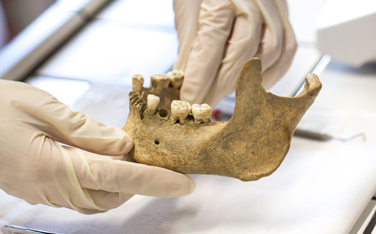Will there ever be a vaccine for cavities?
2-word answers: Cavity vaccines
Q:
A:
It’s possible.
Cavities are creeps. They lurk around, settling into the grooves of your mouth, only to be discovered by your disappointed dentist. It’s no wonder you’re asking about vaccines — cavities can make you feel helpless!
But the good news is that scientists at the Chinese Academy of Sciences have been working on a vaccine that could potentially lower your risk of cavities.
Here’s how it would work:
• Similar to a flu shot, a cavity vaccine would blend proteins with Streptococcus mutans (S. mutans), which is the cavity-causing bacteria.
• Once received, the vaccine would boost your body’s resistance to S. mutans, so that over time, it could no longer cause tooth decay.
Tooth decay does more than diminish oral health. Cavities can lead to gingivitis and gum disease, both of which have been linked to heart disease, diabetes and even dementia. But even though a cavity vaccine could improve lives and smiles around the world, the science is still in the discovery phase.
In a 2012 cavity vaccine study published in the Journal of Dental Research, scientists found that their fusion protein vaccine produced unwanted inflammation. But later versions of the vaccine showed more promising results:
• Over 50% of the rats and mice with cavities showed signs of healing.
• Among those without cavities, 64.2% had cavities prevented.
So, as of today, much more testing and research are needed before you can schedule an appointment with your dentist for the vaccine. In the meantime, the best way to ward off cavities is to take care of your smile. Simply brushing twice a day and flossing daily can protect your teeth from harmful bacteria creeping in. And twice a year, be sure to visit your dentist so you can keep track of bacterial developments and better manage your oral health.
Spring’s finally here!
Check out these smile-inducing activities for you and your family.
Thinking of going abroad for dental care?
Get the facts before making the trip.
Did the Mayans wear gold grills?
Learn how ancient civilizations bedazzled their teeth.









